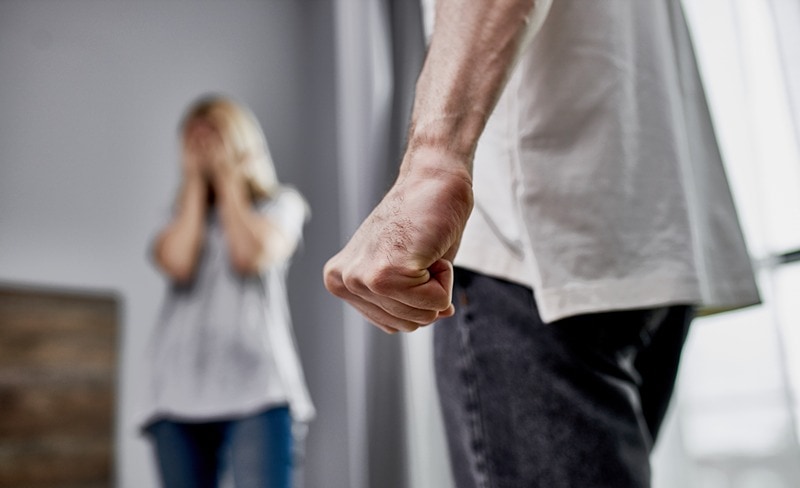
Feature Article - Exploring the Complexities of Evidence in Domestic Violence Cases
Domestic violence is a serious crime that affects countless individuals and families across the country. In Arizona, the burden of proof falls squarely on the prosecution to demonstrate beyond a reasonable doubt that the defendant committed the crime. This high standard requires presenting clear, convincing evidence that leaves no room for reasonable doubt in the minds of the jurors. However, what type of evidence is used in domestic violence cases, and how does the defense challenge this evidence? We explore the complexities of evidence in domestic violence cases in this feature article.
The Types of Evidence Used in Domestic Violence Cases
The prosecution in domestic violence cases can present a wide range of evidence to demonstrate that the defendant committed the crime. This evidence can include:
Physical Evidence
Physical evidence in domestic violence cases can include anything from weapons, clothes, and personal items to photographs of injuries sustained by the victim. Physical evidence can be particularly useful in cases where the victim's testimony may be deemed unreliable or where the defendant denies the charges.
Testimonial Evidence
The most common form of evidence in domestic violence cases is testimonial evidence. This can include the victim's account of the events leading up to and during the domestic violence incident, as well as testimony from witnesses who saw or heard what happened.
Medical Evidence
Medical evidence, such as records detailing the victim's injuries or hospital visits, can also assist the prosecution in domestic violence cases. Medical evidence can provide a clear timeline of events and serve as proof that the victim was, in fact, injured.
Audio and Video Evidence
In today's digital age, audio and video evidence are becoming increasingly common in domestic violence cases. This includes recordings of phone conversations, video footage from surveillance cameras, or audio recordings made by witnesses. Audio and video evidence can be particularly powerful when prosecuting cases where the victim is afraid to testify or where there are few eyewitnesses.
Expert Witness Testimony
In some cases, expert witnesses may be called upon to provide testimony in domestic violence cases. An expert witness can provide insight into the nature of domestic violence, patterns of behavior exhibited by abusive individuals, and the potential long-term effects of domestic violence on victims and their families.
Statistical Evidence
Lastly, statistical evidence can also be used in domestic violence cases. This can include data on the prevalence of domestic violence, the effects of domestic violence on individuals and families, and evidence of a pattern of abusive behavior exhibited by the defendant.
How the Defense Challenges Evidence in Domestic Violence Cases
The defense's role in domestic violence cases is to challenge the prosecution's evidence and create reasonable doubt in the minds of the jurors. To accomplish this, the defense may take a variety of approaches, including:
Attacking the Credibility of Witnesses
In many domestic violence cases, the victim's testimony is the key piece of evidence presented by the prosecution. Therefore, the defense may aim to challenge the credibility of the victim or any other witnesses called to testify. This may involve highlighting inconsistencies in their stories or calling into question their motives for testifying against the defendant.
Questioning the Chain of Custody of Physical Evidence
If physical evidence is presented in the case, the defense may challenge the chain of custody of the evidence. This means questioning whether the evidence was properly collected, stored, and analyzed, and whether there is any possibility that it could have been tampered with or contaminated.
Disputing the Validity of Expert Witness Testimony
If an expert witness is called upon to testify, the defense may dispute the validity of the testimony. This can include questioning the expert's credentials, methodology, or conclusions.
Providing Alternative Explanations for the Evidence
The defense may also seek to provide alternative explanations for the evidence presented by the prosecution. This may involve providing an alternative timeline of events or suggesting that injuries sustained by the victim were not the result of domestic violence.
Conclusion
Evidence is a critical component of domestic violence cases, with the burden of proof falling squarely on the prosecution. However, as we explored in this feature article, the defense can challenge this evidence in a variety of ways, creating reasonable doubt in the minds of the jurors. Despite the complexities involved, it is essential to ensure fairness in the legal process and prevent wrongful convictions.
If you are interested in learning more about the types of evidence used in domestic violence cases, please visit evidence-domestic-violence-cases.







